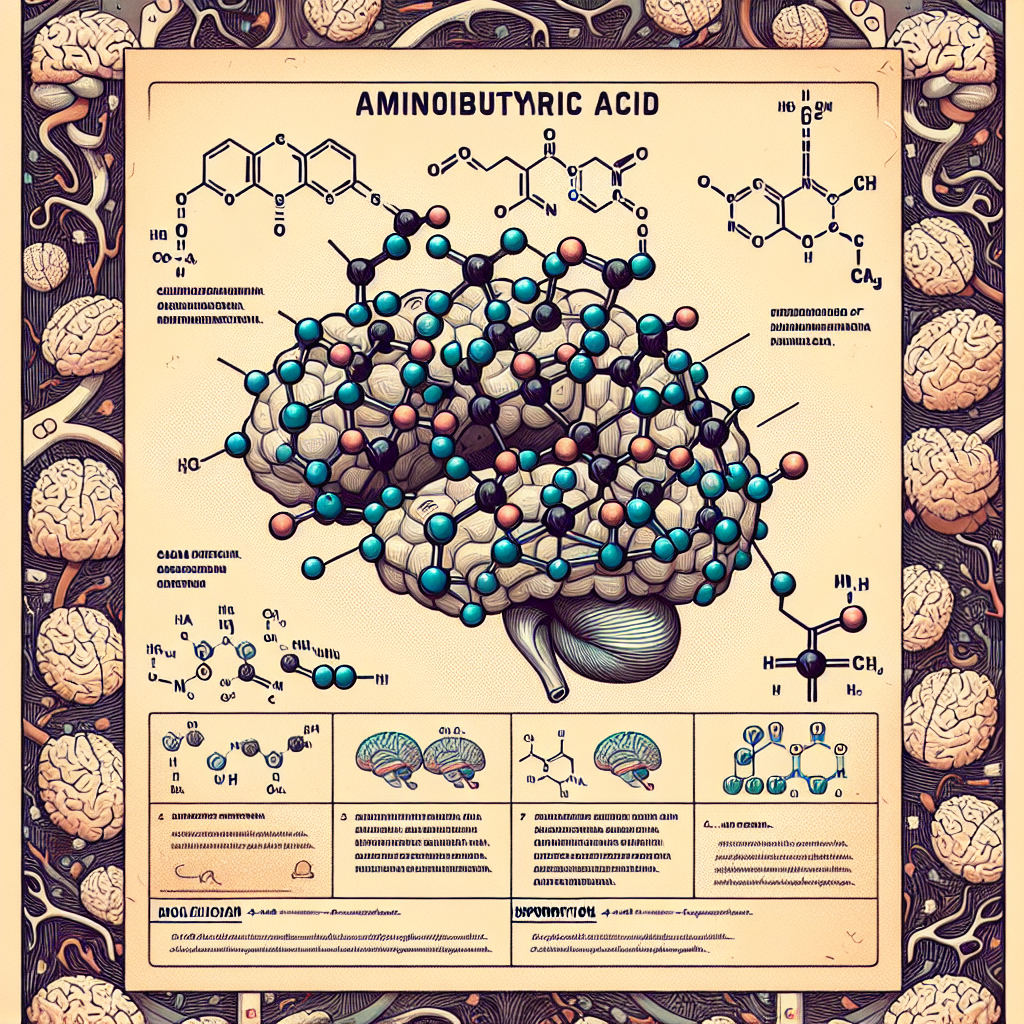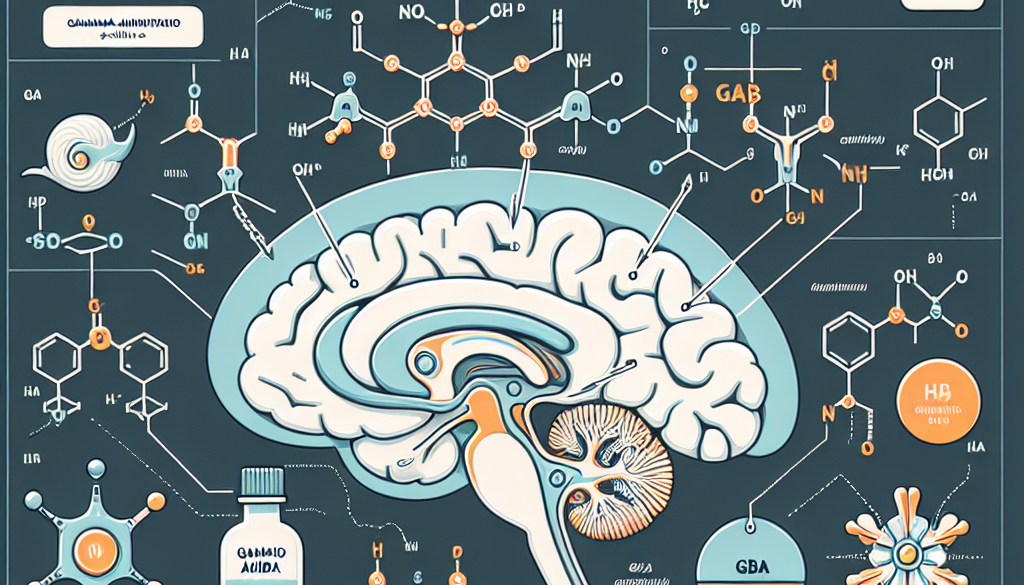Y Aminobutyric Acid GABA Information
-
Table of Contents
GABA (Gamma-Aminobutyric Acid): An In-Depth Guide

GABA, or gamma-aminobutyric acid, is a naturally occurring amino acid that functions as a neurotransmitter in the brain. It plays a crucial role in regulating neuronal excitability throughout the nervous system. In this comprehensive article, we will delve into the world of GABA, exploring its functions, benefits, potential uses, and the latest research findings. By understanding GABA, we can gain insights into how it impacts our health and well-being.
Understanding GABA’s Role in the Brain
GABA is the primary inhibitory neurotransmitter in the central nervous system. Its primary function is to reduce the activity of neurons to which it binds, preventing them from over-firing and thus promoting relaxation and reducing stress levels. Here’s how GABA works within the brain:
- Synthesis: GABA is synthesized in the brain from glutamate, another amino acid, through the action of the enzyme glutamic acid decarboxylase (GAD).
- Release: Once synthesized, GABA is stored in synaptic vesicles and released into the synaptic cleft in response to a nerve impulse.
- Receptor Binding: GABA binds to GABA receptors on the postsynaptic neuron. There are two main types of GABA receptors: GABAA and GABAB. GABAA receptors are ionotropic and mediate fast synaptic inhibition, while GABAB receptors are metabotropic and result in slower, prolonged inhibitory effects.
- Reuptake and Degradation: After GABA has exerted its effects, it is taken back up into the presynaptic neuron or surrounding glial cells and metabolized by the enzyme GABA transaminase (GABA-T).
The Benefits of GABA
GABA’s inhibitory effects on the nervous system translate into several potential health benefits:
- Reducing Anxiety: By inhibiting neural activity, GABA can help alleviate feelings of anxiety and promote a sense of calm.
- Improving Sleep: GABA can enhance the quality of sleep by reducing neuronal excitability, which can help individuals fall asleep faster and enjoy more restful sleep.
- Regulating Muscle Tone: GABA is involved in controlling muscle tone, and adequate levels can prevent muscle spasms and other related conditions.
- Neuroprotection: GABA has neuroprotective properties, potentially safeguarding the brain from damage and supporting cognitive health.
Therapeutic Uses and Research
Given its role in the nervous system, GABA has been studied for its therapeutic potential in various conditions:
- Anxiety Disorders: GABA supplements are often used as a natural remedy for anxiety. While some studies suggest benefits, more research is needed to confirm its efficacy.
- Insomnia: GABA’s ability to promote relaxation and sleep has led to its use in treating insomnia. Some research indicates that GABA supplementation can improve sleep quality.
- Epilepsy: Since GABA can inhibit excessive neuronal firing, it is a target for anti-epileptic drugs. These drugs often enhance GABA’s effects to prevent seizures.
- Hypertension: There is emerging evidence that GABA may help lower blood pressure in individuals with hypertension, possibly through its relaxing effects on the nervous system.
Despite these potential uses, it’s important to note that GABA supplements may not always effectively cross the blood-brain barrier. Therefore, their direct impact on brain function can be limited. However, ongoing research continues to explore ways to increase the bioavailability and therapeutic potential of GABA.
Case Studies and Statistics
Several case studies and clinical trials have provided insights into GABA’s effects on health. For instance, a study published in the “Journal of Biological Chemistry” found that GABA supplementation could significantly increase alpha waves in the brain, which are associated with relaxation and reduced anxiety. Another study in the “Journal of Clinical Neurology” reported that GABA-enriched foods could help improve sleep and immunity in participants.
Statistics from the “National Institute of Mental Health” indicate that anxiety disorders are the most common mental illness in the U.S., affecting 40 million adults. Given GABA’s potential role in managing anxiety, its relevance in mental health cannot be overstated.
Supplementation and Natural Sources
While GABA supplements are available, it’s also possible to support GABA levels through diet. Foods rich in GABA or its precursors include:
- Fermented foods like kimchi, sauerkraut, and yogurt
- Whole grains like brown rice and oats
- Beans and legumes
- Nuts and seeds
- Fish
- Green tea, which contains theanine, a compound that can increase GABA production
When considering GABA supplements, it’s essential to consult with a healthcare provider, as they can interact with medications and may not be suitable for everyone.
Conclusion: The Importance of GABA
In summary, GABA is a vital neurotransmitter that helps regulate brain function and maintain mental and physical health. Its role in reducing anxiety, improving sleep, and potentially offering neuroprotective effects makes it an area of great interest for researchers and healthcare providers alike. While more research is needed to fully understand its therapeutic potential, GABA remains a promising compound in the field of neuroscience and mental health.
Enhance Your Health with ETprotein’s Protein Products
If you’re looking to support your health and well-being, consider exploring ETprotein’s range of high-quality protein products. Their offerings, including organic rice protein, pea protein, and various seed proteins, provide excellent sources of amino acids that can contribute to overall health. Additionally, ETprotein’s L-(+)-Ergothioneine products offer purity and quality that can meet your dietary supplement needs.
About ETprotein:
ETprotein, a reputable protein and L-(+)-Ergothioneine (EGT) Chinese factory manufacturer and supplier, is renowned for producing, stocking, exporting, and delivering the highest quality organic bulk vegan proteins and L-(+)-Ergothioneine. They include Organic rice protein, clear rice protein, pea protein, clear pea protein, watermelon seed protein, pumpkin seed protein, sunflower seed protein, mung bean protein, peanut protein, and L-(+)-Ergothioneine EGT Pharmaceutical grade, L-(+)-Ergothioneine EGT food grade, L-(+)-Ergothioneine EGT cosmetic grade, L-(+)-Ergothioneine EGT reference grade and L-(+)-Ergothioneine EGT standard. Their offerings, characterized by a neutral taste, non-GMO, allergen-free attributes, with L-(+)-Ergothioneine purity over 98%, 99%, cater to a diverse range of industries. They serve nutraceutical, pharmaceutical, cosmeceutical, veterinary, as well as food and beverage finished product distributors, traders, and manufacturers across Europe, USA, Canada, Australia, Thailand, Japan, Korea, Brazil, and Chile, among others.
ETprotein specialization includes exporting and delivering tailor-made protein powder and finished nutritional supplements. Their extensive product range covers sectors like Food and Beverage, Sports Nutrition, Weight Management, Dietary Supplements, Health and Wellness Products, and Infant Formula, ensuring comprehensive solutions to meet all your protein needs.
As a trusted company by leading global food and beverage brands and Fortune 500 companies, ETprotein reinforces China’s reputation in the global arena. For more information or to sample their products, please contact them and email sales(at)ETprotein.com today.














